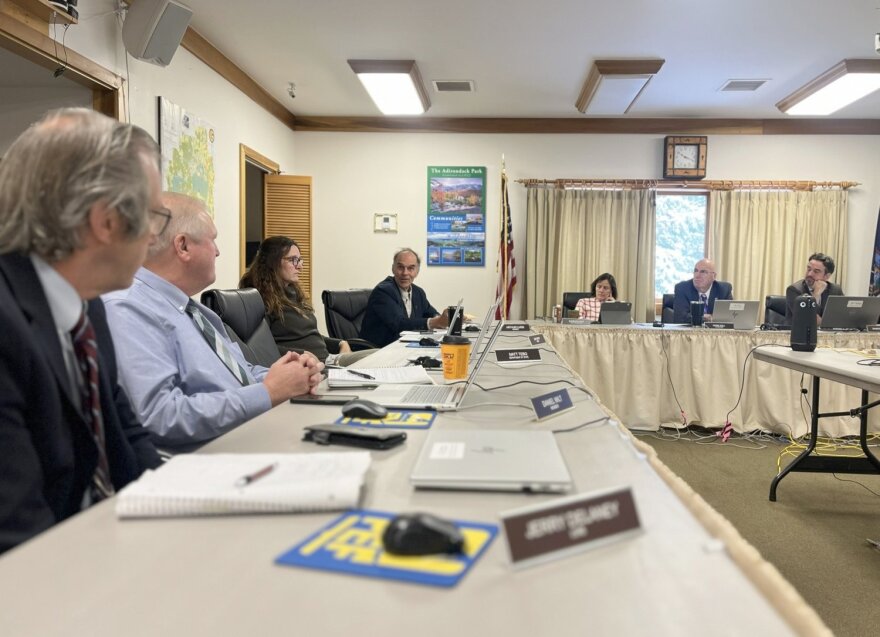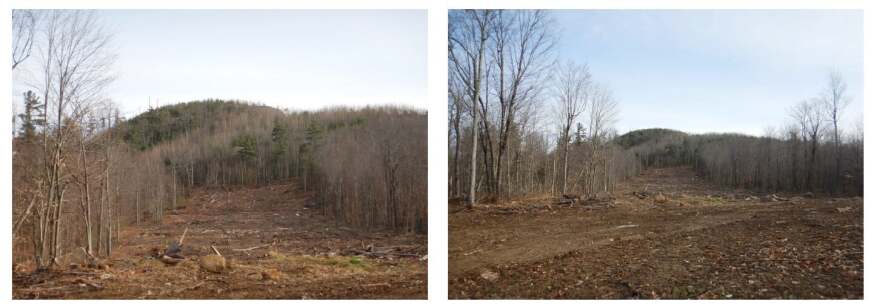For the first time in fourteen years, the Adirondack Park Agency will hold an adjudicatory hearing.
The hearing, overseen by an administrative law judge, will review a weapons range proposed in the eastern Adirondacks. The project has raised concerns from locals and environmentalists, while some say what happens on private property shouldn’t be up for debate.
The applicant, Michael Hopmeier, is an engineer based in Virginia who does contract work for the military. At the proposed weapons range in Lewis, Hopmeier is aiming to study the internal ballistics of a 155mm Howitzer, a modern-day, military-grade cannon.
"The goal of the proposed testing is to enhance the public good by improving national security," Hopmeier wrote in a letter he submitted to the APA on Nov. 6.
The APA has gone back and forth with Hopmeier for four years, asking for more data to understand all potential impacts. One main concern from the agency is about noise pollution. Hopmeier cited a sound study on the cannons conducted by the Norwegian military.
At Thursday's board meeting, the APA’s John Burth said the data Hopmeier provided on sound and other impacts wasn’t sufficient.
"So staff, in conclusion, do not feel we can determine at this time that these modeled assumptions accurately reflect Adirondack terrain, atmosphere, and background sound conditions, and whether the Norwegian study is a reliable analog for this use," said Burth.

Hopmeier declined to speak with NCPR after the APA's meeting, but said in his Nov. letter that "the process applied by the APA is woefully lacking in competence and ability."
In that letter, Hopmeier said the local mine in Lewis produces more noise pollution and negative environmental impacts than his proposed project would. In contrast, Hopmeier said his company, UCI, "has been, and remains, an exemplary steward of the land and environment."
About 1.400 people submitted public comments on the project, nearly all of them opposed.
The APA can’t deny or substantially alter a permit without sending it first to an adjudicatory hearing. So, on Friday, that’s exactly what Burth recommended the board do.
"A hearing will allow a collection of technical data, expert testimony, and public input that would be necessary to determine whether the project meets the conclusions of law that the agency must make under the APA act.”

APA board members went back and forth with Burth for about twenty minutes. Board member Benita Law-Diao asked why Hopmeier can’t test the cannons outside the Adirondack Park.
One worried about the accuracy of the cannons, which would be fired over 600 feet into a shipping container full of sand. Another board member asked how the site would be decommissioned after its five-year use.
At the end of the APA’s meeting on Friday, the board did something they haven’t done in more than a decade. They voted to send the project to an adjudicatory hearing.
After the board voted unanimously in favor of the hearing, Jerry Delaney spoke out in support of the applicant. Delaney isn’t a voting member, but represents the APA's Local Government Review Board. He pointed out that the project was on private land, not in a wilderness or wild forest area.
"I would really like to see a better understanding around what is private land and what is acceptable," said Delaney, "because in actuality, we all know legally Mr. Hopmeier had every opportunity and every right to file for a permit to do what he’s asking to do.”
The APA does have some jurisdiction over private property through building restrictions, land use, acreage size, and more.
Right after Friday’s meeting wrapped up, Jackie Bowen celebrated the APA’s vote, calling it a big moment for the park. Bowen is the director of conservation at the Adirondack Council.
"It’s great to see that when things come into question, an unprecedented project, that the agency can use the tools at its disposal, as they should, so it’s exciting.”
The Council has expressed concern about the impact the weapons testing range could have on the environment and the people who live nearby. The Council also questioned the data that Michael Hopmeier included in his permit
Bowen said she hopes Friday’s vote is the start of a new trend for the APA.
"I hope it sets the tone for when it is appropriate and right for an administrative law judge and an adjudicatory hearing to occur for a project that’s necessary, that the agency continues to use a tool at its disposal in the future.”
In a statement, the APA says it's working to schedule the hearing with an administrative law judge. The agency expects the hearing will happen before the end of this year.

